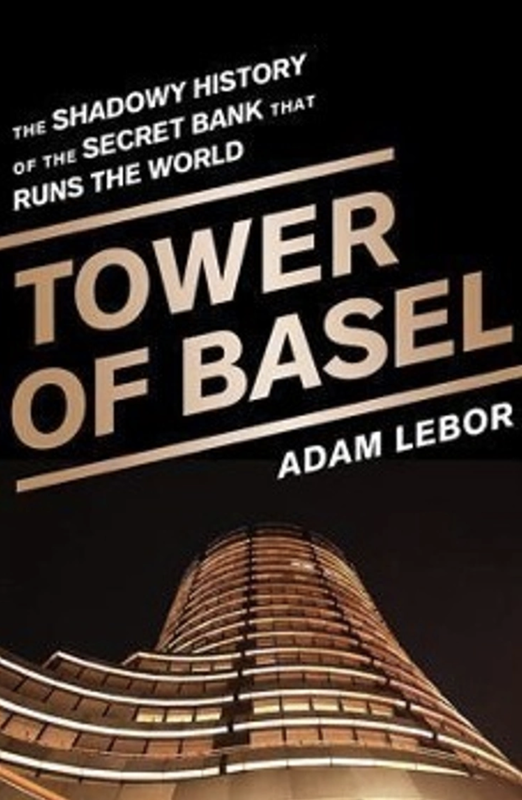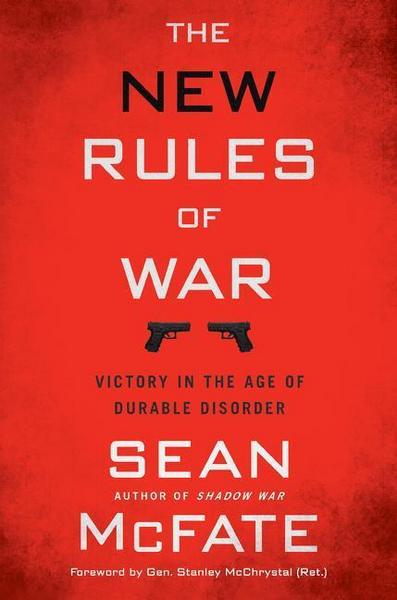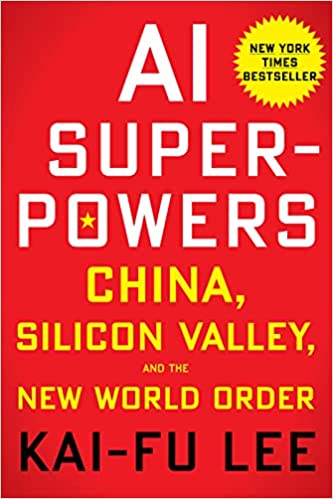|
Venice: A New History
By Thomas Madden Published in October 2013 480 Pages Thibault’s Score: 4/5 Venice: A New History is a survey history of the city of Venice from the time of its construction in the wake of the destruction of the Roman empire until the present day. I generally dislike survey histories because I find them to be vague and non-specific, but this book is awesome. If you want to read a single book to get a basic overview of Venice, this is it. It is neither overly dumbed down nor does it go into pedantic academic detail. The writing style is clear, crisp, and simple - just the way I like it. The detail levels are perfectly balanced - enough detail to make sure that the reader has enough context to understand what is going on without drowing them in distracting information. There are so many fascinating aspects of Venetian history. Venice starts off as a libertarian commercial paradise, but slowly devolves into a whore ridden police state - the North Korea of the renaissance. The book also covers the less known history of Venice - what happens after the renaissance but before the unification of Italy. My favorite chapters are the ones describing how, in the 1600s and 1700s, Venice reinvented itself into a city modeled off of a touristic economy. Napoleon's conquest and partial destruction of the city is also interesting. You hear a lot about the renaissance, but never what happens after. The other chapters that I enjoyed delved into the economics of Venice during its peak. Other strong chapters discuss the evolution of late medieval finance; the mass production of ships at the arsenal and early assembly lines; or ways that Venetians would scam British tourists in the 1700s. One chapter that also marked me was the one giving context to the 4th crusade. When you study medieval history there is a narrative that you always get: the Venetians destroyed the Byzantine empire because they were assholes. This book tries to explain the Venetian perspective, complete with accounts of negotiations being organized prior to the crusades. I had no idea that the Byzantines had, twenty years earlier, orchestrated an anti-Venetian genocide. The way that the knights bartered with the doge, and the doge claimed he lacked authority to negotiate as a tactic also was really inspiring. Venice: A New History has endless nuggets of gold contained within it. History books are rarely this good - I recommend it as the definitive guide to Venetian history.
0 Comments
Tower of Basel: The Shadowy History of the Secret Bank that Runs the World
By Adam LeBor Published in June 2014 360 Pages Thibault’s Score: 4/5 Tower of Basel is a short history of the Bank for International Settlements. I had always heard of the bank, and had some vague idea that it was important, but was otherwise ignorant of it. This book has been eye opening. The Bank for International Settlements was founded in the aftermath of WW1 allied and German bankers to help Germany pay back its war debt. The bank marked itself as “neutral” and “apolitical.” However, the repayment of Germany’s debt was inherently political - and would lead to the rise of the third reich. Later, during the 1930s, the bank was taken over by Nazis and Nazi sympathizers. Allied industrialists used it to semi-legally channel money into the Germany military industrial complex. The bank is credited with having allowed American and British investors in making lucrative investments into the arms factories that would produce weapons to kill their compatriots a decade later. After WW2, BIS was seen as useless. That is when bankers rebranded it to go from a semi-fascistic bank used to fund nazism into a bank that handled currency transactions in between central banks. BIS has maintained this role since the end of WW2. The bankers at BIS have always had an extreme globalist ideology. Whether they were nazis who supported unifying Europe’s currency for Hitler, or leftists creating the Euro thirty years later the fundamental ideas remain unchanged. Now, BIS is talking about creating a one world currency. As a side note I also enjoyed it because I live in Switzerland. Many of the events in the book - like those in Lausanne - take place in areas that I regularly visit. I’ve even been in one of the hotels mentioned. This is an absolutely fantastic book. It sheds light into the global central banking system like no others do. I strongly recommend it to anyone trying to grasp how central banking works. The New Rules of War
By Sean McFate Published in January 2019 336 Pages Thibault’s Score: 4/5 The New Rules of War is a fascinating exploration into 4th generation warfare and the end of the Westphalian system. This book explains why America will fall before the end of the 21st century. It explains why the US and Western powers have lost every major military engagement since WW2 such as Korea, Vietnam, Iraq, Afghanistan, and Syria. The main argument is that the US fights wars conventionally (WW2 style) when all wars, due to technology, are now fought unconventionally (Iraq style). He bemoans the US purchase of expensive aircraft carriers, fighter jets, and tanks as wasteful. Instead, he advocates leaning out and cleaning up the military, focusing on private contractors, psychological operations, and special forces. The future of warfare will not be dominated by states. Instead, it will be age of mercenaries, terrorists, and megacorporations. Do not be worried - these wars will be less chaotic, more controlled, and more cost effective. The author knows what he is talking about: he is both a former soldier as well as an academic researcher. He doesn’t write from the perspective of someone who has never left a dusty desk; instead demonstrating clear field experience. The writing can get a little bit repetitive. He really wants to drill the problems into the head of the military, which can be stubborn. This makes it slightly repetitive at times for us civilians who aren’t biased in the way that his target audience is. I recommend this book to anyone who wants to understand how warfare is changing. It is excellent for beginners, but likely boring for intermediate and advanced military historians. End of an Era: How China's Authoritarian Revival is Undermining Its Rise
By Carl Minzner Published in March 2018 296 Pages Thibault’s Score: 4/5 In this book, Carl Minzner, a senior fellow for China studies at the Council on Foreign Relations and China studies professor at Fordham Law School, explores why China is becoming increasingly authoritarian. The book gives a backgrounder of the Deng Xiao Ping era where China liberalized its economy, society and government creating the prosperity that it is known for today. He talks about how the media became less repressive; local elections were permitted; private companies were encouraged to take charge of the economy; and the media was encouraged to criticize the government. Then, slowly at first, China regressed, becoming more authoritarian. Minzner argues that Xi Jinping’s authoritarianism is actually a sign of weakness. Although, on the surface, China looks strong, it is on the verge of collapse. Christian and Buddhist cults are rapidly growing, ethnic relations are more fragile than ever, and workers are increasingly unhappy. I learned a lot. The only reason why I didn’t give this book a 5 is because it is already nearly 5 years old, and feels slightly dated. An updated version that goes into COVID-19 would definitely get a solid 5. I recommend this book to people trying to wrap their minds around what is happening in China, but it will become outdated very fast. AI Superpowers: China, Silicon Valley, and the New World Order
By Kai-Fu Lee Published in September 2018 272 Pages Thibault’s Score: 2/5 AI Superpowers is a disorganized mishmash of ideas that were conceived by former director of Google China Kai-Fu Lee. The book doesn’t discuss AI at length, instead focusing on the Chinese startup ecosystem, and, at the end, Kai-Fu Lee’s struggles with cancer. The first few chapters of the book are strong - I learned a lot about China’s startup ecosystem. Most interestingly, how it transferred from an imitation based system into an innovation system. I loved learning about how ruthlessly competitive the Chinese employees are; how companies openly use predatory pricing to subsidize their clients and drive competitors out; or how frumpy bureaucrats with secret passions for tech set up SEZs to increase innovation. The book was written in 2018 but already feels dated. That isn’t the biggest problem. Sadly, the book’s title is deceiving. There is barely any discussion of AI. What little discussion there is only scratches the surface, barely going any deeper than what you’d read on Wired Magazine or watch on a VICE News report. None of his takes, stories, and anecdotes on AI were new to me. Finally, the last few chapters are tedious. Kai-Fu Lee talks about his struggles with cancer, how he distanced himself from his family, and how he felt like a robot. I couldn’t care less. If I wanted to read a book about an individual’s struggles with cancer, then I would have hoped for some forewarning in the title. I do not recommend AI Super-Powers. |
Thibault SerletMost of my articles are book reviews, but I also write about many other topics. Archives
December 2023
Categories |





 RSS Feed
RSS Feed